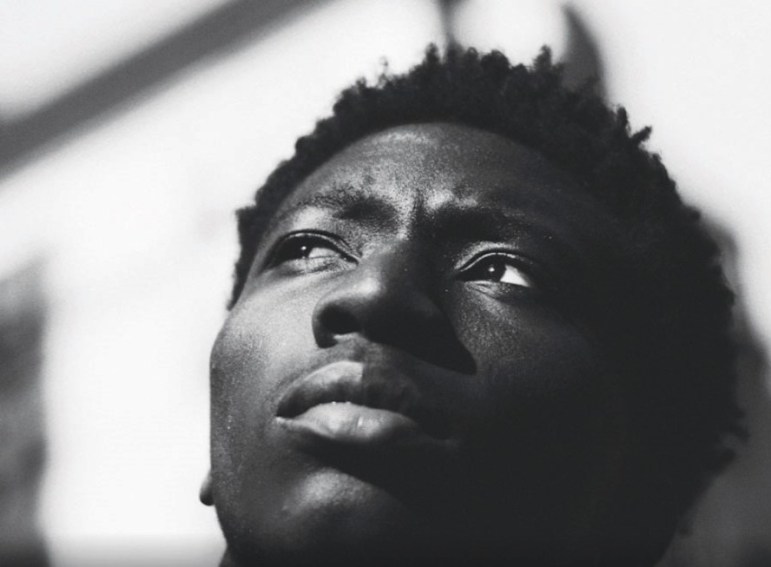With the 2024 NFL draft being held virtually, football fans recently saw some selected players celebrating their big day surrounded by large crowds of family and friends who marked the occasion and million-dollar contracts with tears, shouts of joy, and robust hugs. Emotions ran high as the draft was the culmination of years of practice and sacrifice paying off as the players finally made it to the pros.
What’s not shown is the pressure many players feel at carrying their entire families, neighborhoods, and, to some extent, the broader community on their backs and shoulders. Many were the first in their families to go to college and to have the opportunity to make a lot of money. They’re eager to buy their mothers’ houses and cars for the uncles who came to their games and paid for equipment when their parents couldn’t.
Sen. Laphonza Butler (D-Calif.) asked Marcus Smith II, a first-round draft pick of the Philadelphia Eagles in 2014, to discuss the toll that comes with success for many African American athletes. The prompting came as Smith, who now plays for the Washington Commanders, joined panelists sharing their work and experiences with members of Congress to help celebrate May as Mental Health Awareness Month.
“Mayday: Suicide and the Mental Health of Black Men and Boys” was hosted by Florida Rep. Frederica C. Wilson, chair of the Caucus on the Commission on the Social Status of Black Men and Boys, and Commissioner Troy Carter, who moderated. The discussion drove home the need for more attention and resources for Black men and boys around mental health.
– ADVERTISEMENT –
Smith said mental illness started for him long before the NFL came calling. “I had my first anxiety attack when I was 8. Nobody in my community – my mother, my father, nobody—really understood what that really meant. That carried me all the way to high school and into the NFL,” said Smith, who admitted he contemplated suicide.
Suicide is the third leading cause of death among Black men ages 15-24.
“The suicide rate for Black men and boys has increased 160% over the past three decades, and young Black men are at the heart of this. The younger generation (is) taking a gun and taking their own lives. I refuse to let this go unnoticed,” Wilson said.
“As a mother of a young Black man whose life was taken by gun violence, the health and safety of our Black men and boys is extremely critical and important to me,” said Commissioner Lucy McBath, a U.S. representative from Georgia.
McBath’s son 17-year-old son, Jordan Davis, was fatally shot in 2012 by a white man who objected to loud music being played inside a car occupied by Davis and his friends.
– ADVERTISEMENT –
The panel discussed the importance of mental health awareness and normalization. Smith, who runs Circle of M, a nonprofit that provides healing circles for youth dealing with anxiety and depression, called mental health a journey. “We have to speak about it in order to free ourselves,” he said.
Award-winning recording artist Raheem DeVaughn also shared his lived experiences with mental illness. The singer, dubbed the “Love King,” was a primary caregiver for his father, cellist Abdul Wadud, who lived with schizophrenia. DeVaughn coped with losing his father in 2022 by seeking therapy for the first time at age 40.
“It gives you tools … tools you’ll use forever,” he said.
Speakers emphasized the need to break the stigma surrounding mental health issues and prioritize mental wellness. They also highlighted the impact of COVID-19 and social injustices on mental health and stressed the importance of cultural humility and innovative solutions to address mental health challenges in marginalized communities.
“COVID has ripped the Band-Aid off and begun to really show across the country, and especially in our communities, communities of color, the crises we’re facing with young Black men and boys,” McBath said. “They’re the fastest growing demographic in the country that are suffering from mental health. It’s heartbreaking, and it’s definitely unacceptable.”
– ADVERTISEMENT –
Anthony Estreet, CEO of the National Association of Social Workers, called for more Black mental health providers and incentives for individuals to enter the field. Rep. Carter pointed to the Mental Health Workforce Act he introduced last year to address the lack of diversity. The bill incentivizes students at Historically Black Colleges and Universities to pursue careers as mental health care practitioners by offering student loan forgiveness to those who commit five years to serve communities of color after graduation.
Panelists acknowledged the leadership of Rep. Wilson in addressing the mental health crisis affecting Black men and boys. They emphasized the need for empathy and understanding in addressing these complex issues.
“In your darkest hour, you are not alone,” Carter told young men attending the briefing.
Other participants included Arthur Evans, CEO of the American Psychological Association; Georges Benjamin, executive director of the American Public Health Association; Daniel Gillison Jr., CEO of the National Alliance on Mental Illness; veteran Rep. Danny Davis; and Congressional Black Caucus Chair Steven Horsford.
The Commission on the Social Status of Black Men and Boys was established in 2020 to conduct a systematic study of the conditions affecting Black men and boys, including homicide rates, arrest and incarceration rates, poverty, violence, death rates, health, and academic performance. It’s also charged with proposing policy and government reform to alleviate these pressing issues. Wilson said she and Davis had tried six times to have Congress care about the issue of Black men and boys to no avail. The bill that established the commission passed into law only after the death of George Floyd at the hands or knee of a white Minneapolis police officer.
– ADVERTISEMENT –
Genoa Barrow is a senior staff writer for the Sacramento Observer.
The article Congress Finally Talks Black Male Mental Health appeared first in The Sacramento Observer and is republished courtesy of Word in Black.
Support Black local news
Help amplify Black voices by donating to the MSR. Your contribution enables critical coverage of issues affecting the community and empowers authentic storytelling.



